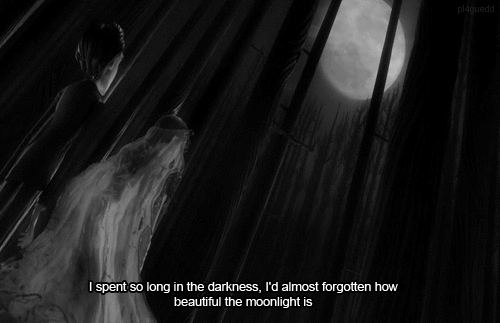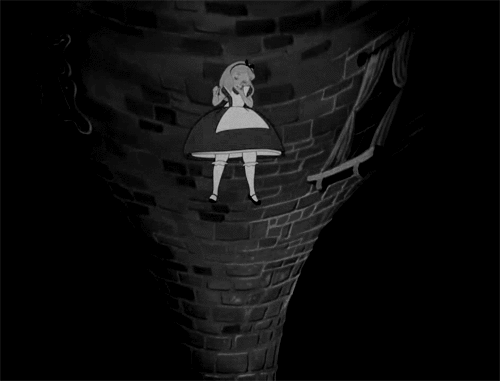All of this is connected with home:
How to find out which planets are in your 4th house?
Click here and fulfill all the needed information in the bottom of the website (day, time,location)
The fourth house is where the lines are red and the most importnant: the number 4 needs to be there. The big circled symbols are two planets: venus and mars. How to find out if a planet is in your first house, and which one, you need to help yourself with this:
I hope it makes sense.
Have fun!!
Sun in 4th house
The chart holder with a
fourth-house sun is not happy unless their home life is happy. Because
the fourth house can be deep and emotional, the sun here has to work
extra hard to liven and inspire things. They thrive and excel in a home
that is active, alive, open and loving. If they aren't in this type of
home environment, they will not feel invigorated about their life. They
will strive to make the changes necessary to give them the home
and family life they need. A fourth-house sun person takes pride in
their heritage, and respects their ancestors along with the trials and
difficulties they endured to advance the family line to its current
point. With this position, the chart holder feels that their ancestors,
current family and their house truly make and reflect exactly who they
are. Fourth-house suns often reminisce about their childhood as
wonderful and positive. They tend to remember the good and dismiss the
bad as they are acutely aware of how their childhood made them who they
are today.
Home and family are
paramount for fourth-house moons as they look to home and family as
their sanctuary in the world. Interacting with family members is serious
business for fourth-house moons, and any disagreements or disputes are
taken to heart. Their heritage is experienced on a feeling level rather
than as something they learn about as they mature and it is always a
part of them on a deeply emotional level. Whether for better or worse,
fourth-house moons have deep relationships with their parents, but it is
the relationship with their mother which is deepest. Commonly
fourth-house moon chart holders spend a great deal of time with their
mothers growing up and are often home giving their mothers constant
emotional support. Separating from their mothers to create their own
home is done carefully, always keeping their mother's feelings in mind.
They welcome the continued support of their mother as they grow their
own family and always keep her as a priority in their lives.
Mercury in 4th house
In the fourth house,
Mercury brings a welcomed light and an unbiased, slightly detached
feeling to this otherwise deeply emotional house. Communication among
family members is assisted with Mercury here. Mercury wants to talk
things through. If there is tension because of disagreements, Mercury
will break things down into rational pieces that can be sorted through
intellectually, and solutions can be found without the emotional drama
that often haunts the fourth house. The deep, often unconscious
and often negative feelings that brew at home can be brought into a
lighter, more conscious realm and dealt with in a more detached and
unbiased way. Using words rather than feelings to solve problems is
Mercury's forte, and in the fourth house, this can go along to creating a
peaceful atmosphere. With a fourth-house Mercury, there may have been a
parent who was somewhat detached in the chart holder's childhood.
Venus in 4th house
Always polite and
amiable with family members, Venus in the fourth house wants a pleasant
home life. A well decorated, clean house is important with this
placement and family life is valued greatly. The fourth-house Venus
chart holder will always see the good side of home life, overlooking the
negative as a child and as an adult. They are also fond of their
heritage regardless of how wonderful it actually is because, for
them, it is inherently valuable. As a child, there was at least one
parent who they saw as gentle, patient and caring and the chart
holder wants to carry this feeling into the home they establish as an
adult.
Mars in 4th house
Satisfying the needs of
the will in the fourth house can be difficult because it is a deep,
emotional house where much of the feeling is unconscious. Mars is an
impatient, conscious planet and doesn't have time for, or understand the
emotional undercurrents which are better dealt with using patience and
tact. To complicate it further, the house inextricably involves family
members with whom the relationships are extremely close and even vital.
Because Mars only serves the will of the chart holder, delicate family
emotions are often dished a harsh blow by Mars' aggressive, determined
and intrinsically selfish style. If Mars takes the need to satisfy its
own will too far in the fourth house, the vital relationships with
parents and children can be harmed, leaving Mars feeling uncared for and
alone. At its best, Mars in the fourth house uses its aggressive,
assertive strength to support its family, defending weaker members or
values that keep the family together. The chart holder with this
placement of Mars will see at least one parent as strong, aggressive,
impatient or possibly self-serving.
Jupiter in 4th house
A fourth-house Jupiter
wants a large, bustling home with children, friends and relatives coming
through constantly to share in the joyful atmosphere. There is a desire
for a large property and often a propensity for owning animals. The
chart holder's heritage is always regarded proudly and is likely
researched with great interest. Property ownership is highly valued and
there is likely an inheritance of property at some point. The chart
holder's childhood is regarded as unrestrained and there is plenty of
opportunity provided by the family in terms of financial and emotional
support. As an adult, the fourth-house Jupiter person has loose reins
with family members allowing children ample space to explore and
experience the world. An open and honest attitude with family members is
found with Jupiter in the fourth house.
Saturn in 4th house
Family and home life can
feel restrictive and burdensome when Saturn is in the fourth house.
Childhood may have been lacking financially or emotionally. There may
have been a parent who was viewed as overly strict, or a parent who
expected the chart holder to support the family in some way. Either way,
the childhood experience was not easy. This feeling is transferred into
adulthood causing the fourth-house Saturn person to see home and family
as a restrictive responsibility. At best, the chart holder simply takes
family life serious and is a responsible provider and caretaker. At
worst, family is seen as unbearably restrictive and the chart holder
longs to escape from it, or avoids establishing a traditional family for
fear it will be a burden. There may be scars in the family heritage
that the chart holder does not want to accept.
During childhood a
fourth-house Uranus can give the chart holder an unwelcomed feeling of
detachment from their family. The detached feeling isn't chosen by the
chart holder. It is simply present in the family. Perhaps a parent is
frequently absent due to work, or there is a divorce or the death of a
close family member during the chart holder's childhood. Or, it can be a
more subtle situation where the parents are always busy with their own
matters. The chart holder may be an only child who simply has fewer
people in the home and is left feeling detached. It is common for these
chart holders to have frequent changes in their childhood. Changes in
residences or economic status are common with Uranus in the fourth
house. As an adult, the chart holder with Uranus in their fourth house
will transfer these feelings into the family they develop. There may be
unconscious need to detach from home and family or to create crises that
invokes change. Home and family life may feel stagnant without frequent
upheavals or changes. Family heritage is likely filled with unexplained
breaks in the family line and isn't of great interest to the chart
holder. At least one parent is seen as distant.
Neptune in 4th house
Emotional undercurrents
of suffering are present in the childhood of the chart holder with
Neptune in the fourth house. It could be any family member including the
chart holder who is seen as the one enduring the suffering. There is
also one family member who is a scapegoat and who receives the blame for
the painful situation. Another family member is seen as a golden family
member and is exempt from the pain. The perception of the roles are
different from person to person, but the chart holder will feel the
dynamic deeply. There is often one parent who has an addiction, usually
drinking, and there is a feeling that this person wants to escape from
the family. Even with all of the confusing, unconscious suffering and
blame, there is an overall feeling of compassion in the family and there
is often a person, or people who are willing to suffer for the other
family members. Family heritage may be difficult to trace, but there is a
comfort found in learning from whatever information is available. In
adulthood, the chart holder is compassionate toward their family and
willing to sacrifice for them.
Pluto in 4th house
Unconscious power
struggles are found when Pluto is the fourth house. In childhood, the
power struggles are usually between the parents of the chart holder and
perceived by the child, but these struggles also occur between the chart
holder and parents especially as the chart holder reaches puberty. The
death of a close family member during the chart holder's childhood is
sometimes experienced as Pluto is the planet of death and new
beginnings. This death may not be literal, but can be experienced as the
death of a marriage because of divorce or the death of a parent's
career. A fourth-house Pluto may also be experienced as a controlling
atmosphere in the childhood home. At least one parent is perceived as
intense and controlling. As an adult, the chart holder with Pluto in the
fourth house inevitably feels tension at home. The control theme is
always present and the question is always whether to relinquish control
to other family members or hold onto power. There are often secrets in
the family heritage that are not addressed.























